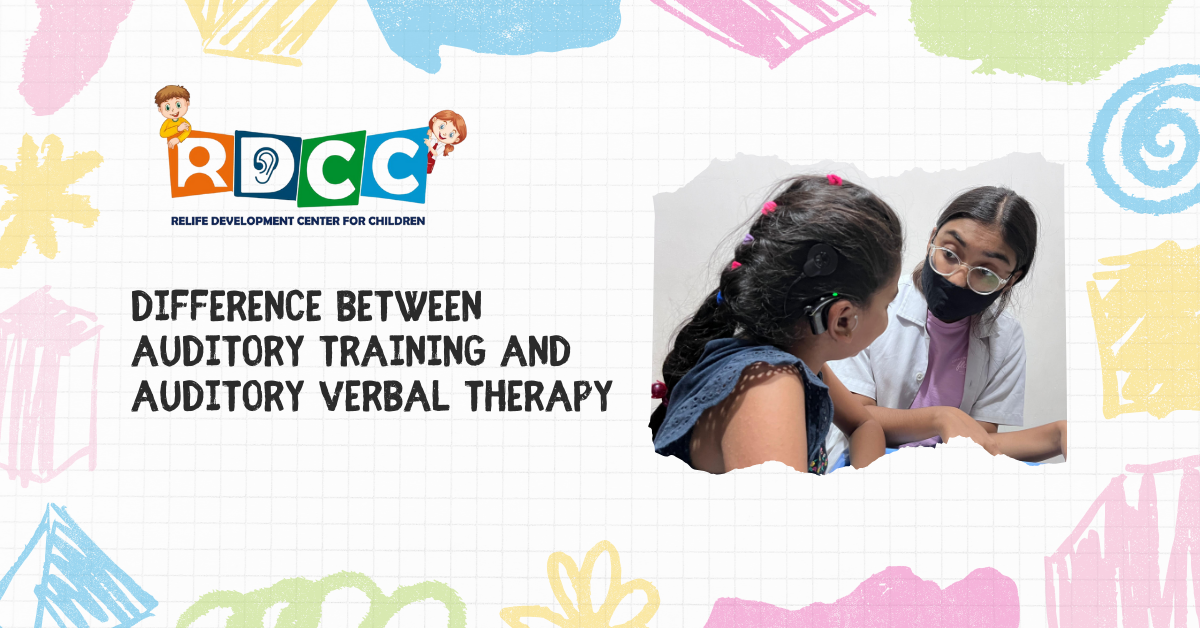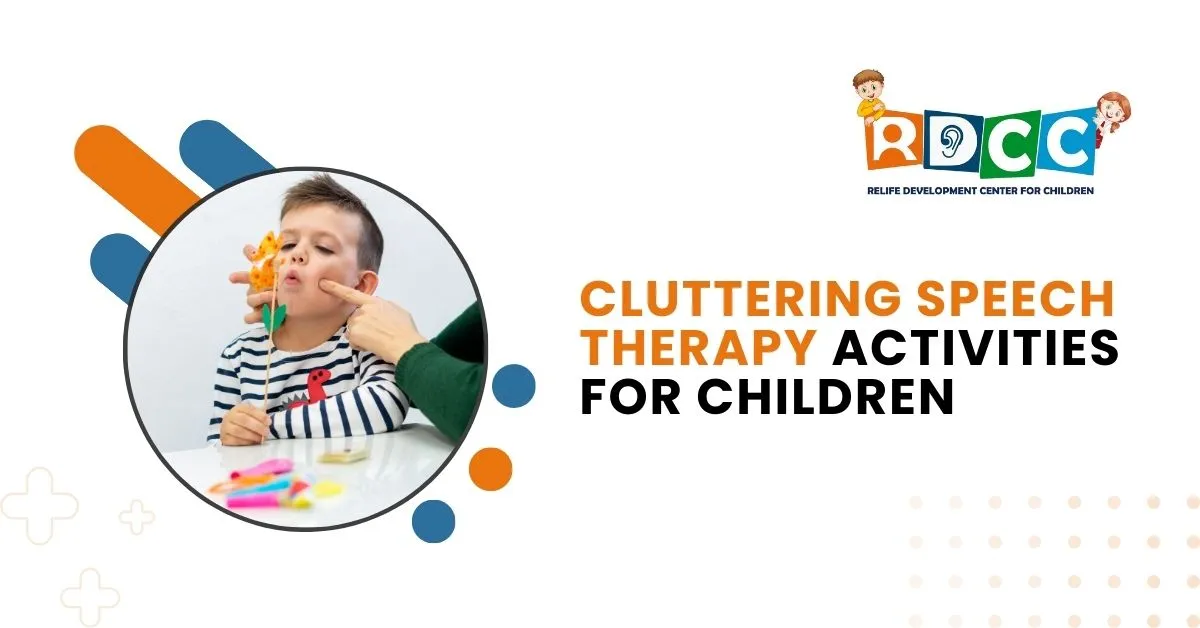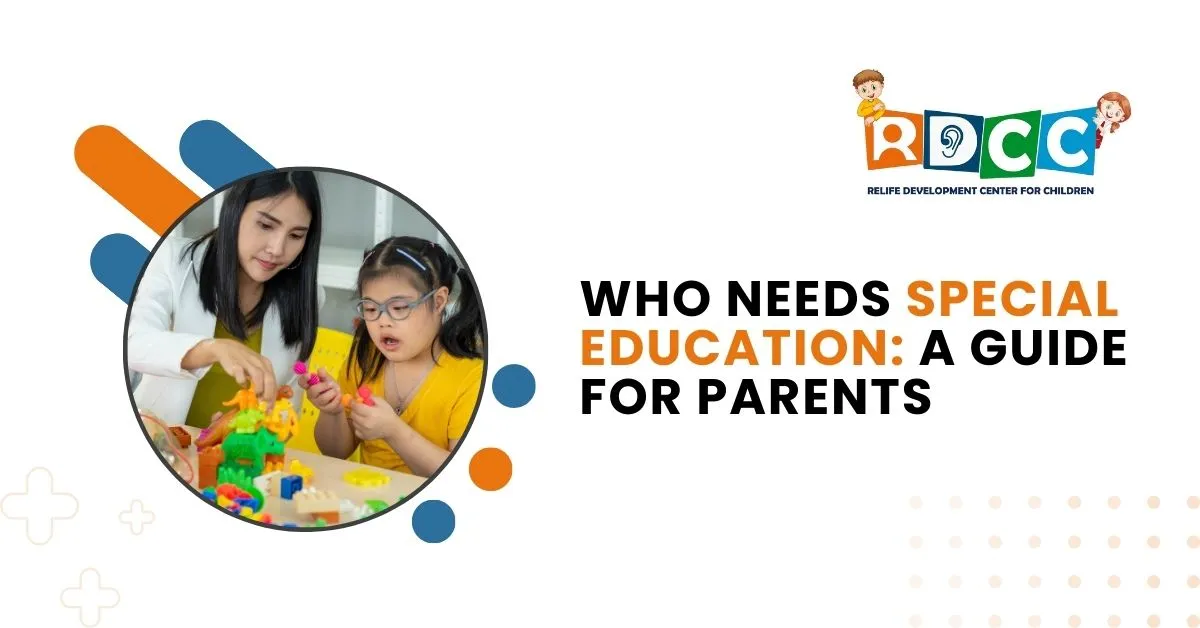
At RDCC Healthcare, Vadodara’s Leading Child Development Centre, we are dedicated to providing the best care for Children with Hearing and Speech Challenges. Understanding the Difference Between Auditory Training and Auditory Verbal Therapy (AVT) is crucial for Parents and Caregivers seeking the most appropriate intervention for their child. This guide will Explore these two distinct approaches, their methodologies, and their benefits.
What is Auditory Training?
Auditory Training is a series of structured listening exercises designed to enhance a person’s ability to Perceive, Process, and Interpret Auditory Information. This form of therapy is often used for individuals with Hearing Impairments, including those who use hearing aids or cochlear implants. The Primary Goal of Auditory Training is to improve Listening Skills, Sound Discrimination, and Auditory Memory.
Key Components of Auditory Training
Sound Discrimination: Helping individuals distinguish between Different Sounds and Understand their Meaning.
Auditory Memory: Improving the ability to remember and recall auditory information.
Sound Localization: Teaching individuals to identify the direction from which a sound originates.
Speech Perception: Enhancing the ability to understand spoken language, particularly in noisy environments.
What is Auditory Verbal Therapy (AVT)?
Auditory Verbal Therapy (AVT) is a specialized form of speech therapy that focuses on teaching children with hearing loss to use their hearing to understand speech and develop spoken language. AVT is conducted by certified auditory-verbal therapists who employ techniques that integrate listening and speaking into everyday interactions.
Key Principles of AVT
Listening and Spoken Language (LSL): Emphasizing the development of listening skills as the foundation for speech and language.
Parental Involvement: Actively involving parents in the therapy process to reinforce learning at home.
Natural Communication: Using natural, meaningful interactions to promote language development.
Individualized Approach: Tailoring therapy sessions to meet the unique needs of each child.
Difference Between Auditory Training and Auditory Verbal Therapy
While both Auditory Training and Auditory Verbal Therapy aim to improve Auditory Skills, they differ in their Focus and Methodologies:
| Parameters | Auditory Training | Auditory Verbal Therapy |
|---|---|---|
| Focus | Primarily focuses on enhancing listening skills and sound perception. | Integrates listening and speaking to develop spoken language in children with hearing loss. |
| Approach | Often involves structured exercises and drills to improve specific auditory skills. | Uses natural, conversational interactions to teach listening and spoken language. |
| Target Audience | Suitable for individuals of all ages with hearing impairments. | Specifically designed for young children with hearing loss, particularly those using hearing aids or cochlear implants. |
| Parental Involvement | This may not always require active parental participation. | Strongly encourages and involves parents in the therapy process to support learning at home. |
Benefits of Each Approach
Auditory Training
- Enhances Listening Skills and Auditory Perception.
- Improves Speech Understanding, Especially in Noisy Environments.
- Benefits Individuals with varying degrees of Hearing Loss.
Auditory Verbal Therapy
- Develop Spoken Language through Listening.
- Promotes Natural Communication and Interaction.
- Encourages Active Parental Involvement for Reinforced Learning.
Frequently Asked Questions
How does Auditory Training differ from Auditory Verbal Therapy?
Auditory Training focuses on enhancing listening skills and sound perception through structured exercises, while AVT integrates listening and speaking to develop spoken language in children with hearing loss using natural, conversational interactions.
Who can benefit from Auditory Training?
Individuals of all ages with hearing impairments, including those using hearing aids or cochlear implants, can benefit from Auditory Training.
Who is Auditory Verbal Therapy suitable for?
AVT is specifically designed for young children with hearing loss, particularly those using hearing aids or cochlear implants.
What are the main goals of Auditory Training?
The primary goals are to improve listening skills, sound discrimination, auditory memory, and speech perception.
What are the key principles of Auditory Verbal Therapy?
AVT emphasizes Listening and Spoken Language (LSL), active parental involvement, natural communication, and an individualized approach tailored to each child’s needs.
Conclusion
Choosing the right therapy depends on the individual needs of the child and the goals of the family. At RDCC Healthcare, Our Team of Experienced Therapists is dedicated to providing tailored interventions that best support the development of your Child’s Auditory and Verbal Skills. Whether through Auditory Training or Auditory Verbal Therapy, our goal is to enhance communication and improve the quality of life of children with hearing challenges. For More Information on Our Services and to determine the Best Approach for your Child, Contact RDCC Healthcare Today.




